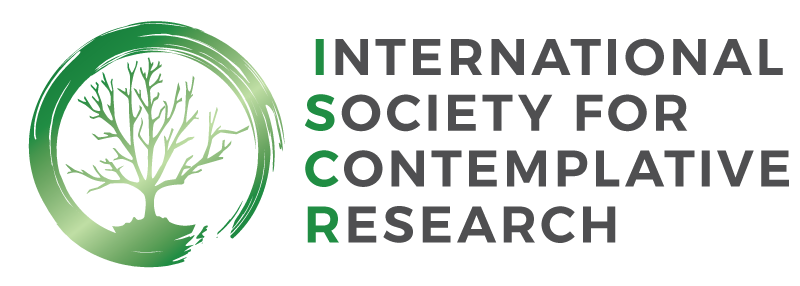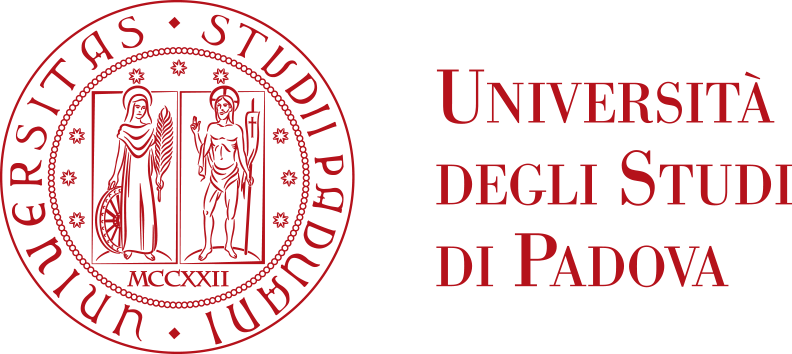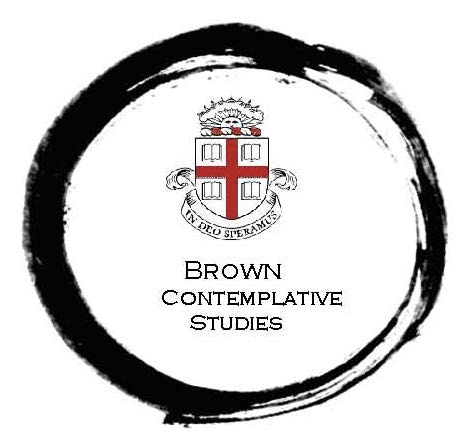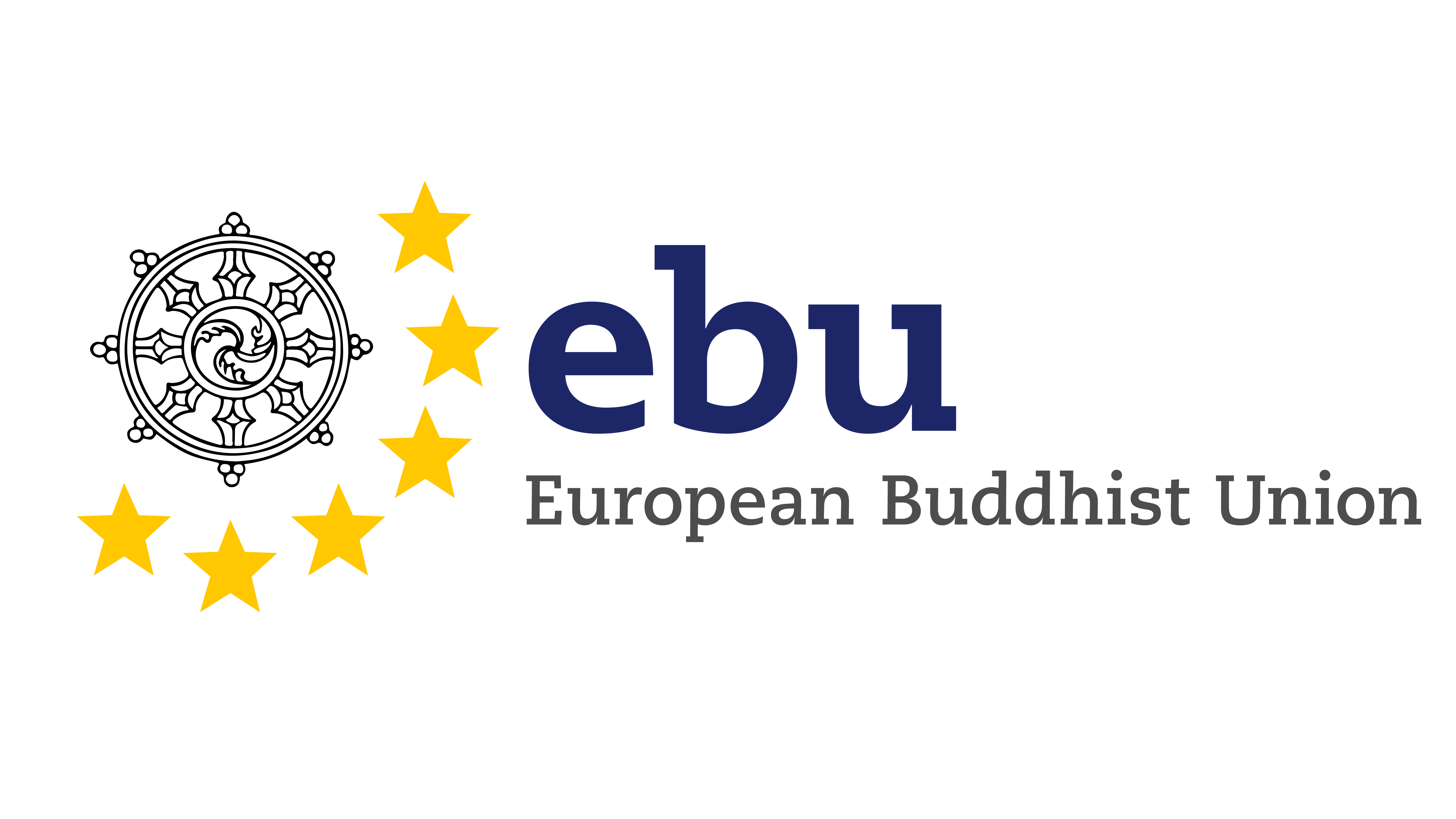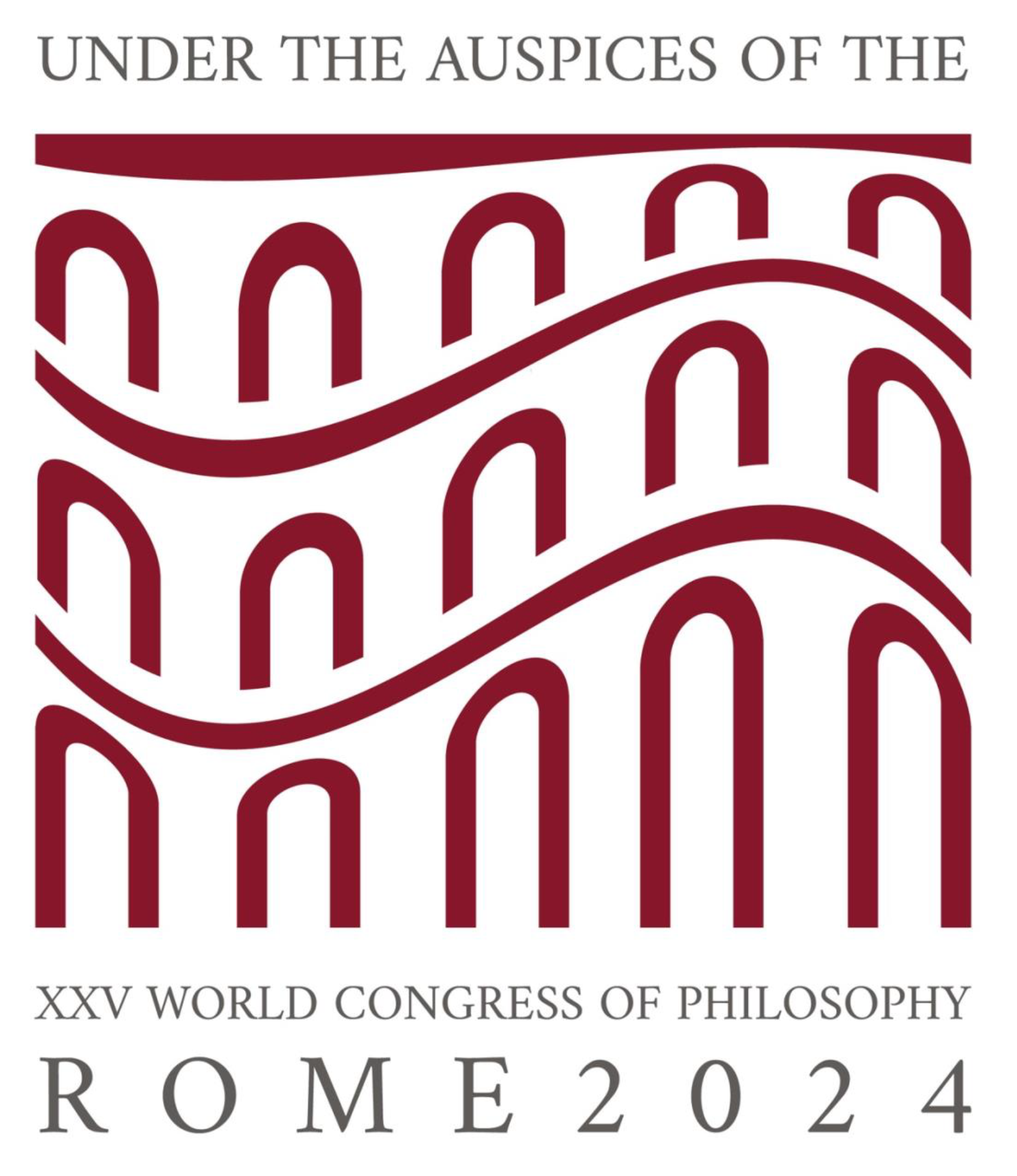Program
Overview
Welcome to Padova for ISCR 2024!
Please note the times listed are in local time for Padova (CEST).
Please use the online program for the most-up to date details.
The pdf program will be updated and re-uploaded at a later date.
Location: San Gaetano Cultural Centre
12:30-18:00
Registration/Info Desk Open
12:30-18:00
Meditation Room Open
13:00-14:40
Pre-Conferences
Workshop 1: Reimagining contemplative education – Sponsored by Mind & Life Institute
Chiara Mascarello, University of Padua; Ca’ Foscari University of Venice
Josipa Mihić, University of Zagreb
Robert W. Roeser, Pennsylvania State University
Harold D. Roth, Brown University
Workshop 2: Advancing efficacious, liberatory methods and approaches to contemplative research: An interdisciplinary workshop and community conversation – Sponsored by the REACH committee
Please see 3-part program here https://iscrsociety.org/workshops/
Doris Chang, New York University
Kamilah Majied, California State University, Monterey Bay
Lindsay E. Romano, New York University
14:40-15:10
Afternoon Break
15:10-16:30
Pre-Conferences Continue
Workshop 1: Reimagining contemplative education – Sponsored by Mind & Life Institute
Chiara Mascarello, University of Padua; Ca’ Foscari University of Venice
Josipa Mihić, University of Zagreb
Robert W. Roeser, Pennsylvania State University
Harold D. Roth, Brown University
Workshop 2: Advancing efficacious, liberatory methods and approaches to contemplative research: An interdisciplinary workshop and community conversation – Sponsored by the REACH committee
Please see 3-part program here https://iscrsociety.org/workshops/
Doris Chang, New York University
Kamilah Majied, California State University, Monterey Bay
Lindsay E. Romano, New York University
16:30-18:00
Free Time
18:00-21:00
Opening Ceremony & Reception
Location: San Gaetano Cultural Centre
08:00-18:00
Registration/Info Desk Open
08:00-18:00
Meditation Room Open
08:30-09:00
ROOM 1: Practice: Thai Samatha Meditation
Sarah Shaw
09:00-10:00
ROOM 1: Keynote Speaker 1: Rhonda V. Magee, University of San Francisco School of Law – Chaired by Doris F. Chang
Sitting in a house afire? On contemplative pedagogy and science in a time of social unrest
10:00-10:30
Morning Break – Sponsored by Contemplative Sciences Center, University of Virginia
10:30-11:30
MEDITATION ROOM: Practice: Yoga
Sat Bir Singh Khalsa
10:30-11:45
Session Block 1 – Panels
ROOM 3: Session 1.1: Health economics research in contemplative studies
- Cate Bailey, University of Melbourne
- Julieta Galante, University of Melbourne
- Anne Speckens, Radboud University Medical Centre
- Jonathan Davies, Contemplative Studies Centre, University of Melbourne
ROOM 2: Session 1.2: Capturing the ineffable: Overcoming barriers of measurement in contemplative sciences
- Oscar Lecuona, Faculty of Psychology, Universidad Complutense de Madrid
- Sara De Rivas, Faculty of Health Sciences, Universidad Rey Juan Carlos
- Raquel Rodríguez-Carvajal, Faculty of Psychology, Universidad Autónoma de Madrid
- Nicholas Van Dam, Melbourne School of Psychological Sciences, University of Melbourne
ROOM 1: Session 1.3: The neurophenomenology of Jhana meditation: Neuroscientific, computational, and phenomenological perspectives on meditative absorption
- Mark Miller, Monash University, University of Toronto, Hokkaido University
- Jonas Mago, McGill University
- Matthew Sacchet, Harvard Medical School / Massachusetts General Hospital
- Joshua Brahinsky, McGill University
- Michael Lifshitz, McGill University
ROOM 4: Session 1.4: Contemplative practices and skills in preservice teacher education: Research from Mexico, Germany, and the United States
- Matthew Hirshberg, University of Wisconsin Madison
- Summer Braun, University of Alabama
- Alison Hooper, University of Alabama
- Tenzin Sonam, Emory University
11:45-12:00
Transition
12:00-13:00
MEDITATION ROOM: Practice: Sufism
Andreas Weber
12:00-13:15
Session Block 2 – Panels
ROOM 3: Session 2.1: Tibetan contemplative practices: Interdisciplinary frameworks
- Michael Sheehy, University of Virginia
- Jim Rheingans, Vienna University
- Julian Schott, Vienna University
- Nicole Willock, Old Dominion University
ROOM 2: Session 2.2: Queering the dharma for the benefit of all: Multidisciplinary views on how queer perspectives intersect with Buddhist meditation and concepts in contemporary societies
- Julieta Galante, University of Melbourne
- Ana Dragojlovic, University of Melbourne
- Oscar Lecuona, Faculty of Psychology, Universidad Complutense de Madrid
- Sara De Rivas, Faculty of Health Sciences, Universidad Rey Juan CArlos
ROOM 1: Session 2.3: Beyond wellbeing: The intersection of art and technology to catalyze contemplative consciousness and deep relating
- Eve Ekman, Greater Good Science Center
- Ausiàs Cebolla, I-PIS-TEC Lab, Faculty of Psychology, University of Valencia
- Jesse R Fleming, The Awareness Lab, Johnny Carson Center for Emerging Media Arts, University of Nebraska-Lincoln
- Emiliana Rodriguez, Made for Joy
- Dave Vago, Brigham & Women’s Hospital
ROOM 4: Session 2.4: Integrating mindfulness and compassion in education: Comparative insights and global perspectives from the Whole School Mindfulness and PRICES frameworks
- Tyralynn Frazier, Emory University
- Sebrina Doyle Fosco, Penn State University
13:15-14:30
Lunch
14:00-14:30
Annual General Meeting (AGM) – For ISCR Members ONLY
14:30-15:30
MEDITATION ROOM: Practice: Tibetan Buddhist Meditation
Ven. Losang Gendun
14:30-16:00
Session Block 3 – Thematically Organized Individual Talk Sessions
ROOM 1 : Session 3.1: Exploring Compassion-Related Interventions – Chaired by Doris F. Chang
S3.1.1: Cultivating compassion in education across borders: The preliminary impact of implementing a compassion-based prosocial development program in schools in the United States, Colombia, and India
- Tyralynn Frazier, Emory University
S3.1.2: Building resilience and social-emotional competencies in elementary school students through a compassion-based SEE learning curriculum
- Hee Jung (Hyeju) Min, Dongguk University
- Sang Hee Park, Daegu Student Suicide Prevention Center, Kyungpook National University Chilgok Hospital
S3.1.3: For compassionate living: A scientific approach to developing an ethical socioemotional program in Brazil
- Tatiana Amato, UNIFESP
- Emérita Opaleye, NEPSIS – Núcleo de Pesquisa em Saúde e Uso de Substâncias, Department of Psychobiology, Universidade
S3.1.4: Empathetic dialogue: Lessons from cultivating compassionate communication in clinical interactions with marginalized communities
- Jessica Carrasco, Jennifer Moreno Veterans Affair Hospital
ROOM 2: Session 3.2: Towards Embodied Wisdom – Chaired by Gabor Karsai
S3.2.1: Cultivating a grammar of non-confrontation in contemplative practice, education, and the world
- Ferdinand Von Muench, Colgate University
S3.2.2: Towards a critical mindfulness pedagogical approach to anti-racist and anti-oppressive education
- Gio Iacono, University of Connecticut
- Spencer Evans, University of Connecticut, University of Connecticut School of Social Work
S3.2.3: Embodied wisdom: Are there common categories of experience that help humans learn and point toward connection and freedom?
- Judson Brewer, Brown University
S3.2.4: Making sense: A contemplative quest towards an emotive epistemology
- Alberto Pulido, University of San Diego
ROOM 3: Session 3.3: Funding options for contemplative research – Chaired by Dave Vago & Marieke van Vugt
- Cheryl Woods Giscombe, UNC Chapel Hill School of Nursing
- Jennifer Baumgartner, NIH
- Christian Suhr, Aarhus University
- Anthony King, Ohio State Wexner Medical Center
ROOM 4: Session 3.4: Mindfulness and Resilience – Chaired by Linda E. Carlson
S3.4.1: The effectiveness of a mindfulness-based intervention on the executive functions and mental health in children at a vulnerable school
- Carlos Garcia Rubio, Nirakara Lab – Complutense University of Madrid
- Catherine Andreu, University of Valencia
S3.4.2: Mindfulness and acceptance training to improve student mental health during exam period
- Karoly Schlosser, Goldsmiths, University of Lodnon
- Juanjo Macias, University of Malaga
S3.4.3: Intersubjectivity in clinically distressed families: Mindfulness and its role in connection and relationship
- Katarina Tabi, UBC; Centre for Mindfulness, Reproductive Mental Health Program, CW Hospital, BCCH Centre for Mindfulness, Reproductive Mental Health Program, The University of British Columbia; Centre for Mindfulness
S3.4.4: The effects of mindfulness based cognitive therapy on psychological distress in people with Parkinson’s disease – A randomized controlled trial
- Franziska Goltz, Donders Centre for Cognitive Neuroimaging, Radboudumc
- Anouk Van Der Heide, Radboud university medical centre, Department of Neurology, Nijmegen, the Netherlands
16:00-16:30
Afternoon Break
16:30-18:00
ROOM 1: Keynote Speaker Panel 1: Embodying love – Chaired by Laura Candiotto
Laura Candiotto, University of Pardubice
Anne C. Klein, Rice University
Christian Suhr, Aarhus University
Andreas Weber, Berlin University of the Arts
18:00-19:00
Poster Session 1
Location: San Gaetano Cultural Centre
08:00-18:00
Registration/Info Desk Open
08:00-18:00
Meditation Room Open
08:30-09:00
ROOM 1: Practice: Tibetan Buddhist Meditation
Anne C. Klein
09:00-10:00
ROOM 1: Keynote Speaker 2: Bret W. Davis, Loyola University – Chaired by Marcello Ghilardi
Groundless zen: On Nishitani in and beyond the embodied mind
10:00-10:30
Morning Break
10:30-11:30
MEDITATION ROOM: Practice: Yoga
Sat Bir Singh Khalsa
10:30-11:45
Session Block 4 – Panels
ROOM 1 : Session 4.1
S4.1.1 (55 min): Feeding your demons: An embodied practice, historical context, and contemporary research on turning towards and transforming difficult emotions
- Eve Ekman, Greater Good Science Center
- Kate Greer Dickson, Pacifica Graduate Institute
- Dorje Lopön Chandra Easton, Dharma Teacher and author, Tara Mandala Retreat Center
S4.1.2 (20 min): Transforming empathy‐based stress to compassion: Skillful means to preventing teacher burnout
- Helen Min, University of Virginia
- Patricia Jennings, University of Virginia
ROOM 2: Session 4.2: Neural mechanisms of mindfulness-based interventions promoting mental health and resilience
- Guusje Collin, Radboudumc and Donders Institute for Brain, Cognition and Behavior
- Clemens Bauer, Northeastern University, Department of Psychology; Massachusetts Institute of Technology
- Jiahe Zhang, Northeastern University, Department of Psychology
- Ivana Buric, University of Amsterdam, Department of Psychology
ROOM 3: Session 4.3
S4.3.1 (55 min): Cultivating humanistic education: Ongoing studies in contemplative pedagogy
- Galia Patt-Shamir, Tel Aviv University, Department of East Asian Studies, Department of Philosophy and School of Culture
- Raquel Shaoul, Tel Aviv University
- Naomi Lossin, Tel Aviv University, The Mandel Center for Public Humanities, The Faculty of Humanities
S4.3.2 (20 min): Free Time
ROOM 4: Session 4.4: Relational awakening: The liberative power of spiritual friendship (kalyana mitta)
- Fabio Giommi, NOUS- School of Specialization (PsyD) in Psychotherapy mindfulness-oriented, Milano
- Janet Surrey, Insight Dialogue Community
- Stefano Poletti, Stefano Poletti Centre de Recherche en Neurosciences de Lyon Bron, Rhone-Alpes FRANCE
- Antonella Commellato, AIM-Associazione Italiana per la Mindfulness; Insight Dialogue Community
11:45-12:00
Transition
12:00-13:00
MEDITATION ROOM: Practice: Japanese Rinzai Zen Meditation
Bret W. Davis
12:00-13:15
Session Block 5 – Panels
ROOM 1: Session 5.1: From mindfulness and psychedelics to nature therapy: Exploring the spectrum of integrative and contemplative interventions in oncology
- Linda Carlson, University of Calgary
- Haley Mather, University of Calgary
- Hanna Conradi, University of Calgary
- Jamie Petersson, University of Calgary
ROOM 2: Session 5.2: Emptying ourselves, sustaining the planet: How contemplative sciences can help tackling global challenges through deconstructing the self
- Oscar Lecuona, Faculty of Psychology, Universidad Complutense de Madrid
- Sara De Rivas, Faculty of Health Sciences, Universidad Rey Juan Carlos
- Ausias Cebolla Marti, University of València
- Raquel Rodríguez-Carvajal, Faculty of Psychology, Universidad Autónoma de Madrid
ROOM 3: Session 5.3: Implementation and impact studies of a college course on human flourishing: Results from three universities across three years
- Blake Colaianne, Penn State University
- Matthew Hirshberg, University of Wisconsin Madison
- Robert Roeser, Pennsylvania State University
- Karen Inkelas, University of Virginia
ROOM 4: Session 5.4: Impact of mindfulness meditation on neurophysiological, cognitive, and behavioural indices of self-related processing
- Ivan Nyklicek, Tilburg University
- David Vago, Brigham & Women’s Hospital/Harvard Medical School
- Karin Matko, Chemnitz University of Technology
- Fynn-Mathis Trautwein, University of Freiburg
- Baruch Rael Cahn, USC Brain and Creativity Institute
13:15-14:30
Lunch
14:30-15:30
MEDITATION ROOM: Practice: Tibetan Buddhist Meditation
Anne C. Klein
14:30-16:00
Session Block 6 – Thematically Organized Individual Talk Sessions
ROOM 4: Session 6.1: Meditation for Teachers – Chaired by Doris F. Chang
S6.1.1: Operationalizing mindful co-regulation to promote social connectedness in secondary schools
- Desiree Murray, University of North Carolina at Chapel Hill
- Rachel Mills-Brantley, University of North Carolina at Chapel Hill
S6.1.2: Teacher mindfulness as a collective “view,” not an individual “do”
- Rebecca Baelen, Center for Reaching and Teaching the Whole Child
- Lindsay Romano, New York University
S6.1.3: Mindfulness-informed practices for digital wellness in open, digital & distance education
- Agnieszka (Aga) Palalas, Athabasca University
- Mae Doran, Athabasca University
S6.1.4: Examining teachers’ uptake of mindfulness practices: Insights from CARE implementation during COVID-19
- Helen Min, University of Virginia
- Karime Cameron, University of Virginia
ROOM 2: Session 6.2: Dealing with Pain – Chaired by Fadel Zeidan
S6.2.1: Neurochemical correlates of psilocybin-based therapy for chronic phantom limb pain
- Jon Dean, University of California, San Diego
- Ethan Hurwitz, UC San Diego, Department of Anesthesiology
S6.2.2: The shape of pain: Microphenomenology interviews reveal varieties of painful experience after mindful interoceptive exposure training for chronic low back pain
- Wolf Mehling, University of California San Francisco
- Rick Hecht, University of California San Francisco
S6.2.3: The feasibility and acceptability of integrating an online mindfulness-based stress reduction program for chronic musculoskeletal pain management within pain clinics in Australia
- Anita Barros Carlos De Amorim, The University of Sydney
- Trudy Rebbeck, The University of Sydney
S6.2.4: Novel mechanisms supporting the modulation of pain by mindfulness and placebo
- Fadel Zeidan, UC San Diego
ROOM 3: Session 6.3: Contemplative Practice and Relationality – Chaired by Bret W. Davis
S6.3.1: The effect of Tibetan monastic debate on emotion regulation
- Marieke Van Vugt, University of Groningen
- Sudhakar Mishra, Indian Institute of Technology Kanpur
S6.3.2: Scientist-practitioner collaborations to advance research into religious contemplative practices: The case of Hitbodedut
- Aaron Cherniak, Stockholm University
S6.3.3: A modal approach to cultivating intersubjective values
- Theodore Locke, University of Massachusetts Boston
S6.3.4: Examining the dyadic impact in daily life of individual participation in a meditation-based or an active-control well-being program
- Christopher May, University of Groningen
- Marieke Van Vugt, University of Groningen
ROOM 1: Session 6.4: Arts, Embodiment and Contemplative Practice – Chaired by Laura Candiotto
S6.4.1: Contemporary art and contemplative action
- Tim Mchenry, Rubin Museum of Art
- Tracy A. Dennis-Tiwary, The Emotion Regulation Lab, Hunter College, The City University of New York
S6.4.2: Contemplative polyphony – Aesthetic contemplation as a conceptual leitmotiv for musical composition
- Jakob Stillmark, Zurich University of the Arts / University of Music and performing Arts Graz
S6.4.3: Coupling philosophical frameworks with embodied practices: Integrating body and mind, me and others, in higher education
- Chiara Robbiano, Utrecht University
S6.4.4: Body politic and the art of perception: A case study of contemplative liberal arts pedagogy in a North American public university honors college context
- Kate Mondloch, University of Oregon
16:00-16:30
Afternoon Break
16:30-18:00
ROOM 1: Keynote Speaker Panel 2: New models for contemplative education – Chaired by Harold D. Roth
Gábor Karsai, Dharma Gate Buddhist College
Chiara Mascarello, University of Padua; Ca’ Foscari University of Venice
Josipa Mihić, University of Zagreb
Harold D. Roth, Brown University
18:00-19:00
Poster Session 2
20:00-21:00
Concert at San Gaetano Cultural Center
Playing the Present. Music for Awakening.
Musicafoscari Ensemble:
- Arianna Moro: soprano
- Silvia Cattarinich: soprano
- Ottavia Carlon: violin
- Federica Lizio: alto saxophone
- Daniele Goldoni: trumpet
- Francesco Rossi: electric guitar
- Eugenio Cereser: keyboard
Dance: Marieke van Vugt
Music by Terry Riley, Philip Glass; Improvisations.
Our music is oriented towards adopting an ethical attitude for “deep” listening in the continually flowing present moment. “Deep listening” is a concept and practice inspired by Pauline Oliveros. It is an immersive experience, rather like a sound meditation. This “deep” attitude towards sound, which allows us to focus on musical ideas through repetitions and improvisational variations, has been the foundation for many important contemporary composers, including John Cage, Giacinto Scelsi, Cornelius Cardew, Philip Glass, Terry Riley, and Steve Reich. In our performance we adopt this immersive attitude towards sound and music, which enables us to improvise free from tonal and rhythmic prescriptions. We listen to the sound that resonates in the internal, intimate memory of our own musical experience, remaining awake to the music, the improvisations of the other musicians, the resonance of the audience’s response, and the sound of the environment. This is how we produce unexpected music in which everyone is free to express themselves and become themselves, being responsible for the collective result.
Location: Beato Pellegrino Complex
08:00-18:00
Registration/Info Desk Open
08:00-18:30
Meditation Room Open
08:30-09:00
ROOM 1: Practice: Japanese Rinzai Zen Meditation
Bret W. Davis
09:00-10:00
ROOM 1: Keynote Speaker 3: Franz Vollenweider, University of Zürich – Chaired by Dave R. Vago
Neuroscientific foundations of psychedelic experience: Potential synergies with mindfulness meditation and clinical implications
10:00-10:30
Morning Break on your own
10:30-11:30
MEDITATION ROOM: Practice: Zen-Based Embodiment Training
Harold D. Roth
10:30-12:30
Session Block 7 – Panels
ROOM 1: Session 7.1 (10:30-11:30): A longitudinal study on time, space and the self in a postgraduate program in contemplative studies: Psychological, philosophical and educational insights and implications
- Chiara Mascarello, Ca’ Foscari University of Venice
- Elisa Paluan, University of Padova
- Bianca Ventura, University of Ottawa
ROOM 2: Session 7.2 (10:30-11:30): Self as process and its effacement: Western and Buddhist psychology views
- Fabio Giommi, Nous- School of Specialization (PsyD) in Psychotherapy mindfulness-oriented, Milano
- Shaun Gallagher, Department of Philosophy, University of Memphis, USA and SOLA, University of Wollongong, Australia
- Aviva Berkovich-Ohana, University of Haifa
ROOM 3: Session 7.3 (10:30-11:30): Yoga for improving mental health and functioning: Relevance for contemplative states
- Sat Bir Khalsa, Harvard Medical School
- Shirley Telles (Patanjali Research Foundation)
- Helen Lavretsky (UCLA)
ROOM 4: Session 7.4 (10:30-12:30): Meditation and its Impacts – Thematically Organized Individual Talk Sessions – Chaired by Marieke van Vugt
S7.4.1: Floatation therapy as a gateway to improved interoception, mindfulness, and body image in anorexia nervosa
- Sahib Khalsa, Laureate Institute for Brain Research
- Emily Choquette, Laureate Institute for Brain Research
S7.4.2: Longitudinal dose-response effects for meditation on personality change
- Haisu Sun, University of Melbourne
- Nicholas Bowles, University of Melbourne
S7.4.3: ENIGMA-meditation: A new world-wide meditation neuroscience consortium
- Anthony King, The Ohio State University
S7.4.4: Do contemplative practices make us moral?
- Kevin Berryman, Monash Centre for Consciousness and Contemplative Studies, Monash University
- Jakob Hohwy, Monash Centre for Consciousness & Contemplative StudiesMelbourne, Australia
S7.4.5: Modelling the self in relation to meditation practice: Can different interdisciplinary views ever be reconciled?
- Tim Wood, University of Melbourne
- Julieta Galante, University of Melbourne
ROOM 2: Session 7.5 (11:30-12:30): Beyond standard mindfulness-based interventions: Investigating the effects of sustained mindfulness practice in patients with persistent depression
- Thorsten Barnhofer, University of Surrey
- Jonathan Hamilton, University of Surrey
- Anne Speckens, Radboud University Medical Centre
ROOM 1: Session 7.6 (11:30-12:30): Redefining resilience to end oppression and support intersectional equity and prosociality in contemplative research and praxis
- Sarina Saturn, ADVANCE Journal for Individual and Institutional Transformation for Social Justice
- Kamilah Majied, California State University, Monterey Bay
- Christa Tinari, Garrison Institute
ROOM 3: Session 7.7 (11:30-12:30): Free Time
12:30-14:00
Lunch on your own
14:00-15:00
MEDITATION ROOM: Practice: Thai Samatha Meditation
Sarah Shaw
15:00-16:00
MEDITATION ROOM: Practice: Taiji
Larson Di Fiori
14:00-16:00
Session Block 8 – Thematically Organized Individual Talk Sessions
ROOM 1: Session 8.1: Innovative Tools for Supporting Meditation – Chaired by Sahib Khalsa
S8.1.1: On becoming aware that one is dreaming: A micro-phenomenological investigation of signal-verified lucid dream experiences
- Ema Demsar, Monash University
- Mahdad Jafarzadeh Esfahani, Donders Institute for Brain, Behaviour, and Cognition, Radboudumc
S8.1.2: Lucid dreaming VR: Exploring the potential of virtual reality in fostering lucid dreaming according to Tibetan dream yoga
- Francesco Tormen, Ca’ Foscari University of Venice
S8.1.3: Modulation of neural responses to heartbeats during a novel meditation practice targeting manipulation of bodily-self consciousness
- Hang Yang, Laboratory of Cognitive Neuroscience, Neuro-X Institute and Brain-Mind Institute, EPFL
- Chuong Ngo, All Here SA
S8.1.4: Breathing bio-feedback during meditation in virtual reality enhances meditation experience and bodily-self effects
- Monika Stasytyte, All Here SA
- Hang Yang, Laboratory of Cognitive Neuroscience, Neuro-X Institute and Brain-Mind Institute, EPFL
S8.1.5: Cultivating mental stillness: EEG-based neurofeedback training for upregulating non-harmonic alpha-theta cross-frequency interactions during focused attention meditation
- Hendrik-Jan De Vuyst, KU Leuven
- Angeliki-Ilektra Karaiskou, KU Leuven
ROOM 2: Session 8.2: Pathways and Obstacles: Navigating the Path – Chaired by Chiara Mascarello
S8.2.1: How do meditators find meaning in meditation-related adverse experiences?
- Merle Kock, KU Leuven
- Tim Wood, University of Melbourne
S8.2.2: Nonlinear path or pathology? A culturally sensitive complex systems approach to meditation-related difficulties in Abrahamic traditions
- Nathan Fisher, Brown University
S8.2.3: A qualitative study examining the lived experiences of stress among female sexual assault survivors in an 8-week trauma-sensitive yoga intervention
- Nicole Nicotera, University of Denver
- Megan Connolly, University of Denver
S8.2.4: Progress in meditation practice: A Delphi consultation study with Buddhist and secular meditation teachers
- Lillian Ward, University of Melbourne
- Tim Wood, University of Melbourne
S8.2.5: Ananda & Sukha: Indian model of happiness & its mental health implications
- Jyotsna Agrawal, National Institute of Mental Health and Neuro Sciences (NIMHANS)
ROOM 3: Session 8.3: Contemplative Pedagogies in Higher Education – Chaired by Harold D. Roth
S8.3.1: William & Mary interdisciplinary contemplative research & education – An overview
- Mark Mclaughlin, College of William and Mary
- Anne Ryan Gareis, William & Mary
S8.3.2: The uneven terrain of sociology’s articulations with contemplative practice, yoga and martial arts, with a proposal for a Field’s consolidation
- Michael Kennedy, Brown University
S8.3.3: Cultivating attention through literary engagement: Developing a mindful reading curriculum which encourages intersections between literature and contemplative practice
- Anton Krueger, Rhodes University
S8.3.4: Contemplative pedagogy, student learning and wellness, and contemporary social issues
- Judson Murray, Capital University
S8.3.5: Embodied pedagogy for emerging contemplative researchers
- Jenna Faith Mcclear, Duke University
- Joseph Diehl, Duke University
ROOM 4: Session 8.4: Exploring Meditation’s Impact on Brain and Cognition – Chaired by Dave R. Vago
S8.4.1: Proactive control enhances reappraisal efficacy, especially among low mindfulness individuals
- Bruna Martins-Klein, University of Southern California
- Ziyuan Chen, University of Southern California
S8.4.2: Mindfulness and metacognitive monitoring accuracy in young meditators compared to non-meditators
- Regula Neuenschwander, University of Bern
- Janina Eberhart, University of Tübingen
S8.4.3: Neural signatures of mindfulness: Decoding the transient and enduring effects of an intensive meditation retreat on brain connectivity
- Sébastien Czajko, Lyon Neuroscience Research Center, INSERM, Lyon
- Arnaud Poublan-Couzardot, Lyon Neuroscience Research Center, INSERM, Lyon
S8.4.4: Meditation engages imaging biomarkers of the neurofluid circuit (i.e., glymphatic pathways) similar to sleep and potentially different from paced breathing
- David Vago, Brigham & Women’s Hospital/Harvard Medical School
- Manus Donahue, Vanderbilt University Medical School
S8.4.5: Evaluating the protective effects of a brief mindfulness instruction towards food cravings triggered by food Advertising
- Constanza Baquedano, Universidad Adolfo Ibañez
- Antonia Zepeda, Universidad Adolfo ibanez
16:00-16:30
Afternoon Break on your own
16:30-18:00
ROOM 1: Keynote Speaker Panel 3: Microphenomenology, contemplative practice and intersubjectivity – Chaired by Marieke van Vugt
Anne C. Klein, Rice University
Olga Klimecki, Technische Universität Dresden
Claire Petitmengin, Institut Mines-Telecom Business School
Marieke van Vugt, University of Groningen
18:00-18:30
ROOM 1: Practice: Tibetan Buddhist Meditation
Ven. Losang Gendun
Location: Capitanio Palace
08:00-18:00
Registration/Info Desk Open
08:00-18:00
Meditation Room Open
08:30-09:00
ROOM 1: Practice: Zen-Based Embodiment Training
Harold D. Roth
09:00-10:30
ROOM 1: Keynote Speaker Panel 4: New paradigms for body-mind practices – Chaired by Marcello Ghilardi
Marcello Ghilardi, University of Padua
Olga Klimecki, Technische Universität Dresden
Sarah Shaw, Oxford University
Shirley Telles, Patanjali Research Foundation
10:30-11:00
Morning Break on your own
11:00-12:00
MEDITATION ROOM: Practice: Contemplative Dance
Marieke van Vugt
11:00-13:00
Session Block 9 – Thematically Organized Individual Talk Sessions
ROOM 2: Session 9.1: Contemplation within Religious Traditions – Chaired by Harold D. Roth
S9.1.1: Looking within: Contemplation and body cultivation in early China
- Christopher Yang, Brown University
S9.1.2: The scope of transformation in Daoist practice
- Larson Di Fiori, Brown University
S9.1.3: Active while in contemplation: The integration of contemplative and active life in the Christian tradition
- Daniele Gunetti, University of Turin
S9.1.4: “You have no need to travel anywhere – journey within yourself” making space for Sufism in contemplative research
- Andrea Pintimalli, University of Padova
S9.1.5: Christian apophatic Tradition in the Latin Catholic church and contemplative studies
- Rossano Zas Friz, Santa Clara University
ROOM 1: Session 9.2: Contemplation and the Environment – Chaired by Chiara Mascarello
S9.2.1: Contemplative ecological educational practices from ancient India
- Pooja Sahni, Indian Institute of Technology Delhi
S9.2.2: Psychedelics and environmental virtues
- Nin Kirkham, The University of Western Australia
- Chris Letheby, The University of Western Australia
S9.2.3: The path of the Ecosattva in uncertain times
- Karsten Struhl, New School for Public Engagement
S9.2.4: Opening (to) the sacred: The ecology of contemplation in the Tibetan treasure tradition
- Oriane Lavole, Stanford University
ROOM 3: Session 9.3: Meditation at the Edge: Exploring Consciousness – Chaired by Francesco Tormen
S9.3.1: Beyond “mindfulness” and toward a science of advanced meditation: Neurophenomenological investigations of absorption and cessation
- Matthew Sacchet, Harvard Medical School / Massachusetts General Hospital
S9.3.2: Meditation Beyond Relaxation: Wakeful alertness, alpha suppression and peak meditative states studied in a meditation expert
- Chuong Ngo, All Here SA
- Hang Yang, Laboratory of Cognitive Neuroscience, Neuro-X Institute and Brain-Mind Institute, EPFL
S9.3.3: Cessations of consciousness during meditation
- Ruben Laukkonen, Southern Cross University
- Heleen Slagter, Vrije Universiteit Amsterdam
S9.3.4: Meditators’ brains show an acceptance of death which predicts positively-valenced self-dissolution experiences
- Yair Dor Ziderman, University of Haifa
- Aviva Berkovich-Ohana, University of Haifa
S9.3.5: The contemplative practice involved in Thukdam: A post-clinical death meditation observed among certain Tibetan monks
- Tenzin Bhuchung, Princeton University
ROOM 4: Session 9.4: The Challenges of Measuring Compassion – Chaired by Dave R. Vago
S9.4.1: Unraveling the science of Tonglen meditation: A psychophysiological study of active compassion in healthcare professionals
- Catherine Andreu, University of Valencia
- Joana Vidal, University of Valencia
S9.4.2: “Ready to help, no matter what you did”: Responsibility attribution and compassion in expert Buddhist practitioners
- Enrico Fucci, Institute for Globally Distributed Open Research and Education (IGDORE)
- Oussama Abdoun, INSERM – Centre de Recherches en Neurosciences de Lyon
S9.4.3: The quality of practice matters: Exploring the effect of Tonglen meditation practice in daily life
- Aida Palacios, Instituto del Polibienestar, Universidad de Valencia
- Desirée Colombo, Department of Basic Psychology, Clinic and Psychobiology, Universitat Jaume I (Spain)
S9.4.4: Challenges of measuring and conceptualizing self-compassion among Tibetan population
- Tenzin Sonam, Emory University
- Shawn Chen, Emory University
S9.4.5: We are in this together: Ascetic practice and cultivating compassion in Nyungne retreat
- Renee Ford, Aarhus University
13:00-13:30
ROOM 1: Closing Session
13:30-15:00
Lunch on your own
15:00-16:15
Post-Conference Workshops (Round 1)
ROOM 2: Workshop 1: Anthropology of and from the heart
Christian Suhr, Aarhus University
ROOM 4: Workshop 2: Measurement issues in contemplative science
David Vago, Virginia University
Marieke van Vugt, University of Groningen
ROOM 3: Workshop 3: Frontiers in contemplative education: Where do we go from here?
Chiara Mascarello, University of Padua; Ca’ Foscari University of Venice
Josipa Mihić, University of Zagreb
Robert W. Roeser, Pennsylvania State University
Harold D. Roth, Brown University
16:15-16:45
Afternoon Break on your own
16:45-18:00
Post-Conference Workshops (Round 2)
ROOM 3: Workshop 4: “The Elephant in the Room” – Do Contemplative researchers need their own contemplative practice?
Harold D. Roth, Brown University
Marieke van Vugt, University of Groningen
ROOM 4: Workshop 5: Contemplative practices in liberatory mentorship and leadership
Doris F. Chang, New York University Silver School
Cheryl Woods-Giscombé, University of North Carolina School of Nursing
Ram Mahalingam, University of Michigan
Kamilah Majied, California State University, Monterey Bay
Felipe Mercado, California State University, Fresno
ROOM 2: Workshop 6: Integrating contemplative practices with psychedelic-assisted psychotherapy research: Methodology, best practices and ethics
Aviva Berkovich-Ohana & Yair Dor-Ziderman, University of Haifa
Rael Cahn, University of Southern California
Linda E. Carlson, University of Calgary
Franz Vollenweider, University of Zurich
Full Program
Download PDF of the 2024 full program book
Last updated June 12
Program at a Glance
Download the PDF of the 2024 program at a glance
Abstract Book
Download PDF of all the abstracts
Workshops
Learn about pre- and post-conference workshops
Presenter Guidelines
Download PDF of ISCR 2024 Presenter Guidelines
Poster Listing
Download PDF of the Poster Listing
Info sulla traduzione italiana
(Italian Translation Info)
Scarica il PDF con info sulla traduzione italiana
Conference Program *May be subject to change
INTRODUCTION TO THE CONFERENCE VENUES
To enhance the visibility and impact of our conference, we have chosen to host it across three significant venues in Padova—the San Gaetano Cultural Center, the Beato Pellegrino Complex, and the Capitanio Palace. The first is one of the vibrant centers of the city’s cultural life and belongs to the municipality, while the other two belong to the university. This approach integrates the conference into the city’s fabric, raising awareness of the emergent field of Contemplative Studies among the public and university community. Moreover, it provides attendees with the opportunity to experience Padova’s rich cultural and historical heritage firsthand.
Day Passes Available!
We are pleased to announce the availability of day passes for our conference. Please note the following details:
- Limited Availability: The number of day passes is limited.
- Single Day Access: The pass is valid for one day only. However, if you find the conference interesting, you can attend the other days at the Final/On-Site Fee, deducting the amount already paid for the day pass.
- Date Selection: You need to choose a specific date at the time of registration.
- Price: €60 +VAT.
Don’t miss this opportunity to join us and explore engaging discussions and presentations. If you are interested in getting a day pass, please email meet@meetandwork.com
